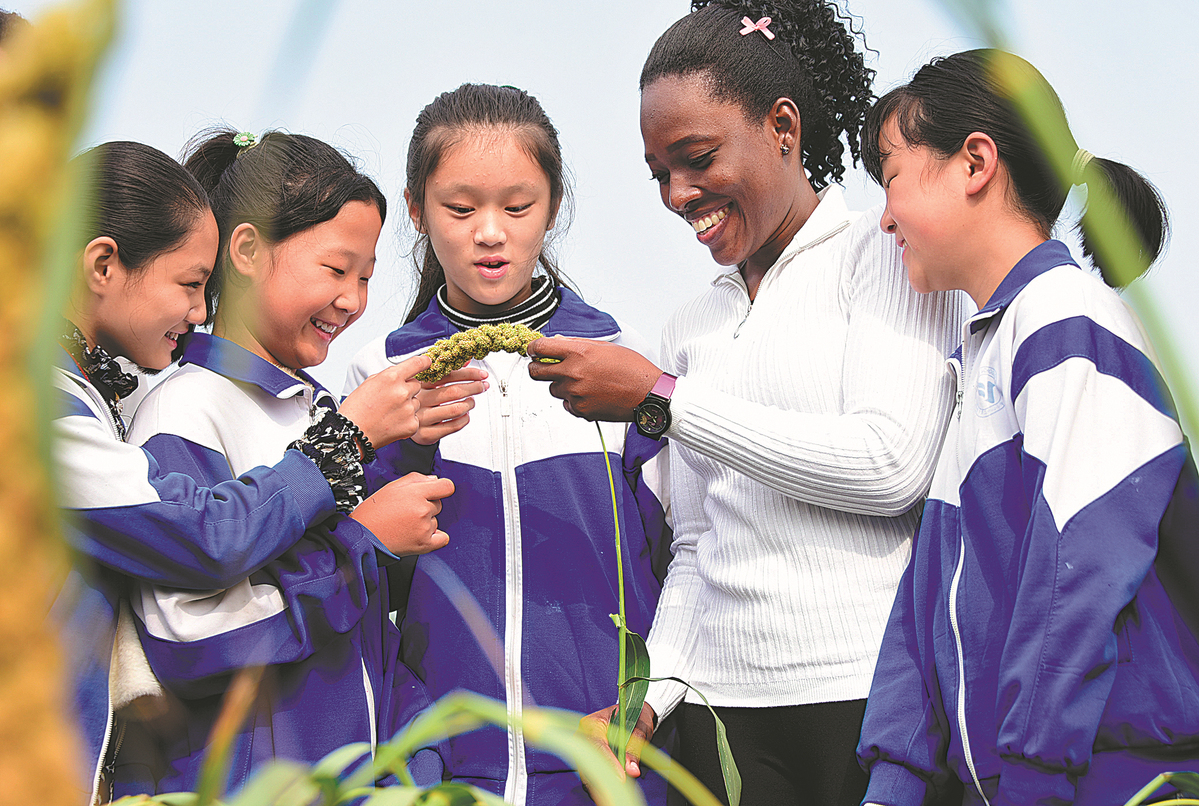Africa partnership yields rich bounty


'Decent living'
Milagre Abel Massingue, a farmer and contractor at the Wanbao Mozambique rice farm, joined the project five years ago. He says that with the Chinese technology he can at least double the output nowadays, and his life has changed dramatically due to rising harvests.
"The hut has been replaced with a concrete house, and furniture and household appliances have been added. I have made a decent living by planting rice in Wanbao," Massingue told Xinhua News Agency in an interview in September.
Guan says the COVID-19 pandemic has caused some interruptions to the operation of the Wanbao farm.
"Many Chinese technicians have been working in the country for more than a year and have not returned home yet, due to restrictions on flights, and rotation of personnel has been suspended. Many people are working under stress," he says. In addition, due to lockdown measures, sales of rice have also been affected.
However, Guan is optimistic that rice farming in the country will still have a good future, as it can greatly contribute to its food security.
Dong says the success of the Wanbao farm may encourage more Chinese investors to put money into agricultural ventures in Africa. Still, he says there are difficulties.
"Investing in agriculture in Africa can be costly due to a lack of infrastructure and high risks due to disastrous weather," he says. "Agriculture is also less profitable compared to many other sectors."
To improve profits and reduce risks, the enterprise has also been exploring ways to diversify crops on the farm. Much of the land is yet to be developed due the costs involved and the limited labor. Vegetables such as tomatoes have been planted in small plots as experiments, Dong says.
"We wish to see more Chinese enterprises participate in agricultural development in Africa to help it improve food security, and we have confidence in the agricultural potential of the continent," he says.


















